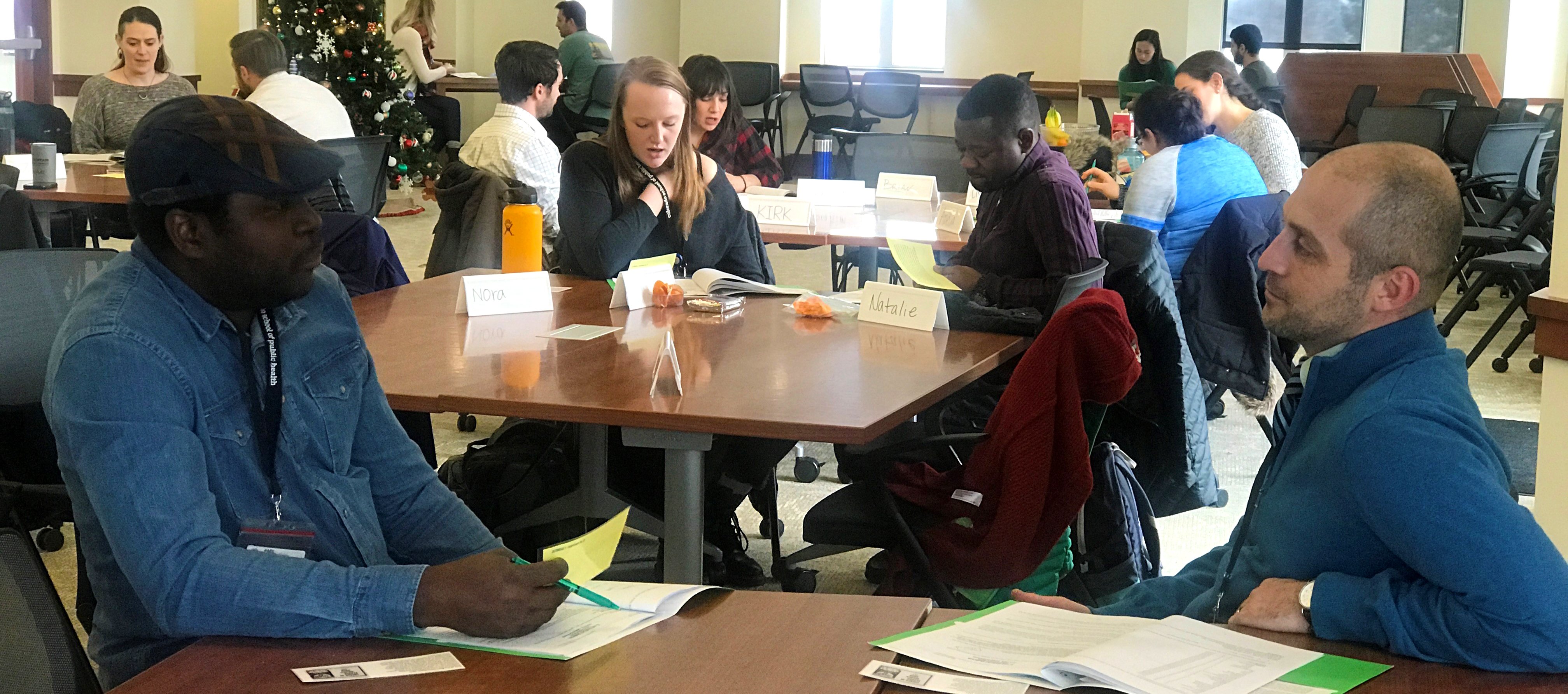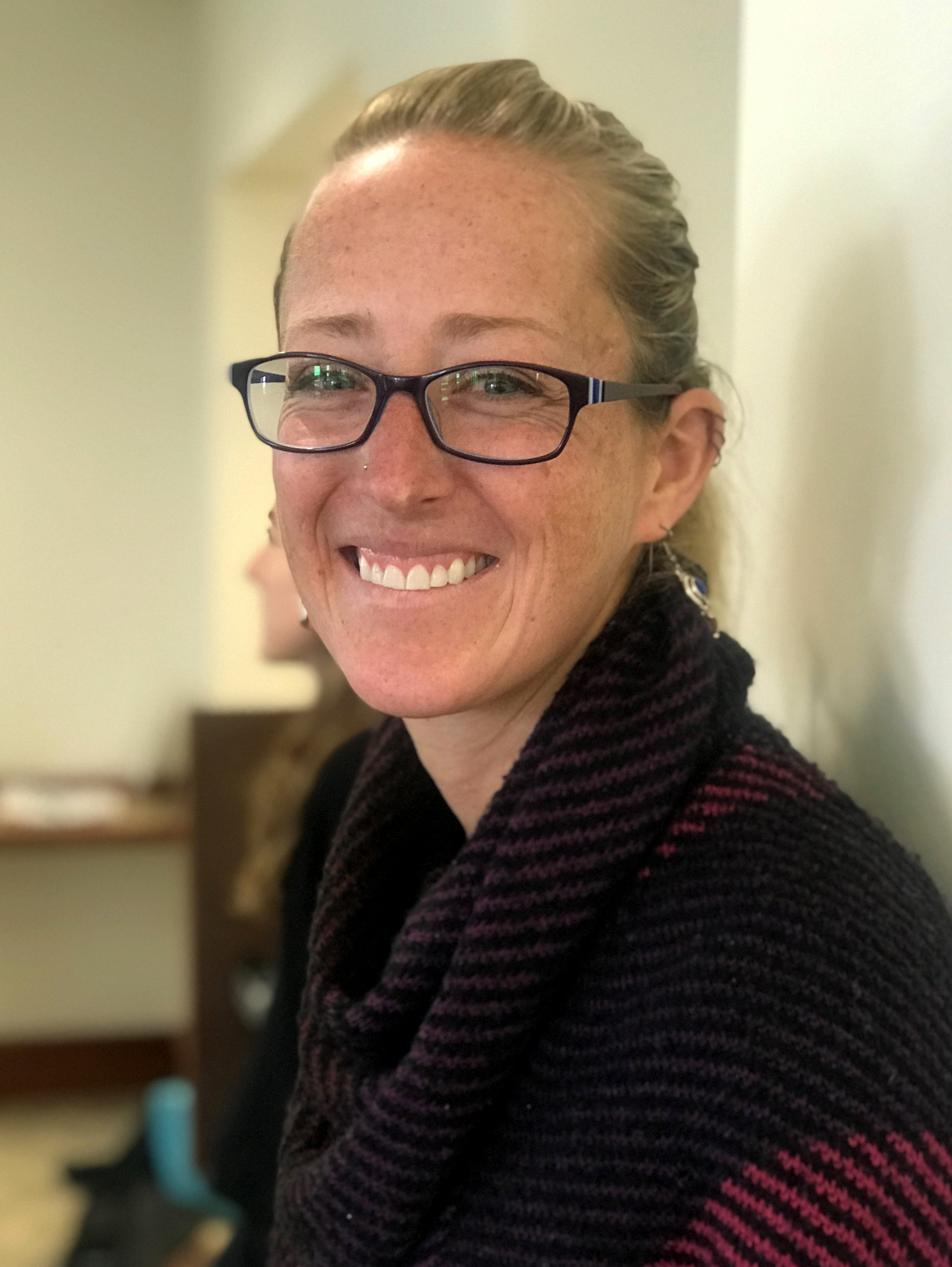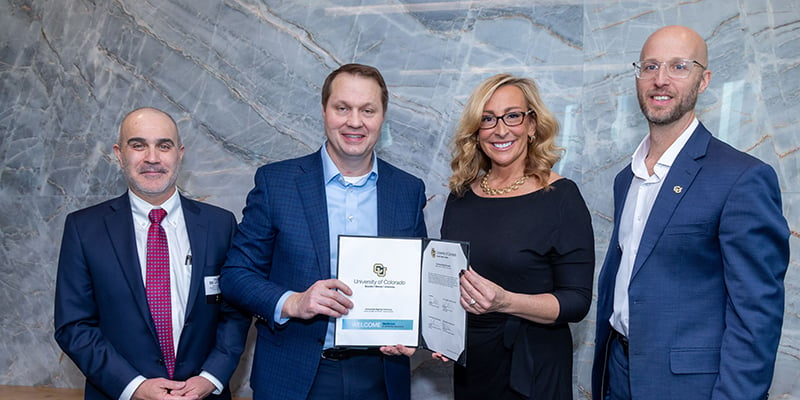In the event of a foodborne disease outbreak, the Colorado Department of Public Health and Environment (CDPHE) is well-equipped to handle most investigations. However, some large outbreaks require extra help.
Recently, approximately 20 students from the Colorado School of Public Health trained as food safety first responders through the Student Outbreak Response Training (SORT) program offered by the Colorado Integrated Food Safety Center of Excellence, a collaboration between CDPHE and the Colorado School of Public Health. The center at the University of Colorado Anschutz Medical Campus is one of only five regional Centers of Excellence funded by the Centers for Disease Control and Prevention (CDC) to serve a 10-state region.
Elaine Scallan Walter, PhD, center co-director and associate professor in the Department of Epidemiology, said, “Early on, we saw a need. It is challenging to train responders when you’re in the throes of an investigation.” Because there are always outbreaks of foodborne diseases, Scallan Walter explained that students trained through the center are added to a list of first responders who can be mobilized when needed. “The students get a great practice-based experience.”
All hands on deck
The half-day SORT program takes place yearly at both CU Anschutz and Colorado State University, with 20 to 30 students attending each training session. Scallan Walter introduced the scientific logic behind running a foodborne disease outbreak investigation, while CDPHE epidemiologist and educator Ingrid Hewitson, MPH, taught attendees the art of investigational interviewing.

Students practiced interviewing skills using questionnaires from previous foodborne disease outbreaks.
During outbreaks, interviews are conducted with people who got sick (“cases”) and people who didn’t get sick after attending the same event (“controls”) to try and pinpoint the source of the outbreak. During the training, students practiced interviewing using questionnaires from real outbreaks – for example about what attendees at a fair ate or drank, to find differences between cases and controls.
Hewitson estimated that student first-responders are called in two to three times per year. “Normally, CDPHE can handle outbreaks, but for really large-scale incidents, where we have hundreds of interviews to complete, there’s no way that the state or local department can handle that kind of workload. We call for backup,” Hewitson said. In the past two years, student interviewers have assisted with outbreaks involving a large water park, a county fair and a raw milk dairy.
SORT attendee Nora Cleary, an MPH student in Global Public Health and Epidemiology, said the most surprising piece of the training was the sheer number of calls that need to be placed during an outbreak. “Sometimes outbreaks can affect large numbers of people, and the public health department tries to reach as many of them as possible.”
Interviewing ‘difficult’ people
Since most foodborne disease investigation interviews are conducted by phone, Hewitson provided students with tips on navigating tough questions. Many can be uncomfortable talking with unfamiliar people over the phone, and interviewers are often asked questions like, “How did you get my name?” and “How do I know you’re who you say you are?” Interviewees often say they don’t talk to solicitors, or that they’re on the do-not-call list.
Ingrid Hewiston, MPH, epidemiologist and educator from the Colorado Department of Public Health and Environment, led the food safety first responder training.
MPH student in Epidemiology and SORT attendee Grace Fleming, RN, said, “It was great to be able to practice interview skills, and learn what to say if the people we call veer off topic or make it hard to get straight answers.” Fellow MPH student Cleary agreed, “The training gave us an opportunity to practice phone calls with some of the more difficult situations. I would feel comfortable doing these phone interviews to help during an outbreak.”
Public health, beyond food safety
While the SORT training was specific to foodborne disease outbreaks, Scallan Walter noted that the skills are broadly applicable. “Outbreaks are where it’s at in terms of on-the-ground training. The skills students learn are relevant to all types of public health crises, not just foodborne disease.” For example, Scallan Walter said, interviewing techniques are applicable to situations involving sexually transmitted diseases or infections (STD/STI) and environmental health concerns.
From a CDPHE perspective, Hewitson added that serving as food safety first responders exposes students to working with health departments, to get an idea of how investigations of all kinds are run.
As a registered nurse, Fleming is experienced at dealing with sick patients. “I have treated several patients, usually toddlers, due to diarrhea and dehydration associated with a foodborne illness, like E. coli, Salmonella, Campylobacter, and norovirus and provided education on proper cooking and food handling,” she said, adding that the SORT training gave her the tools to help out on the other side of a foodborne disease outbreak.
Colorado School of Public Health students noted the real-life application of the SORT training. Scallan Walter herself said she couldn’t overstate the importance of the interview skills the students learned. “All begins (and ends) with a good interview!”
Guest contributor: Shawna Matthews, a CU Anschutz postdoc




